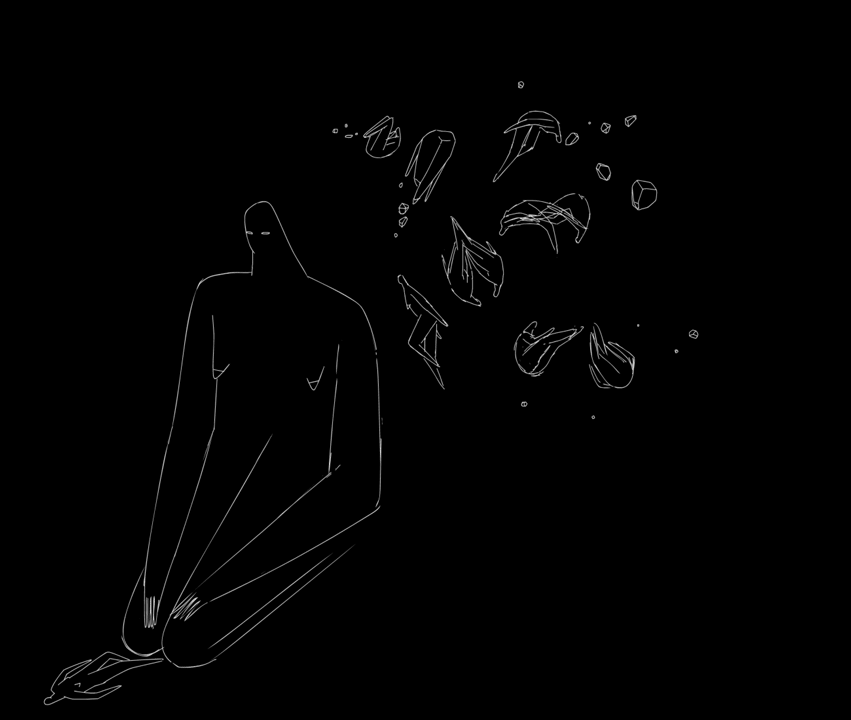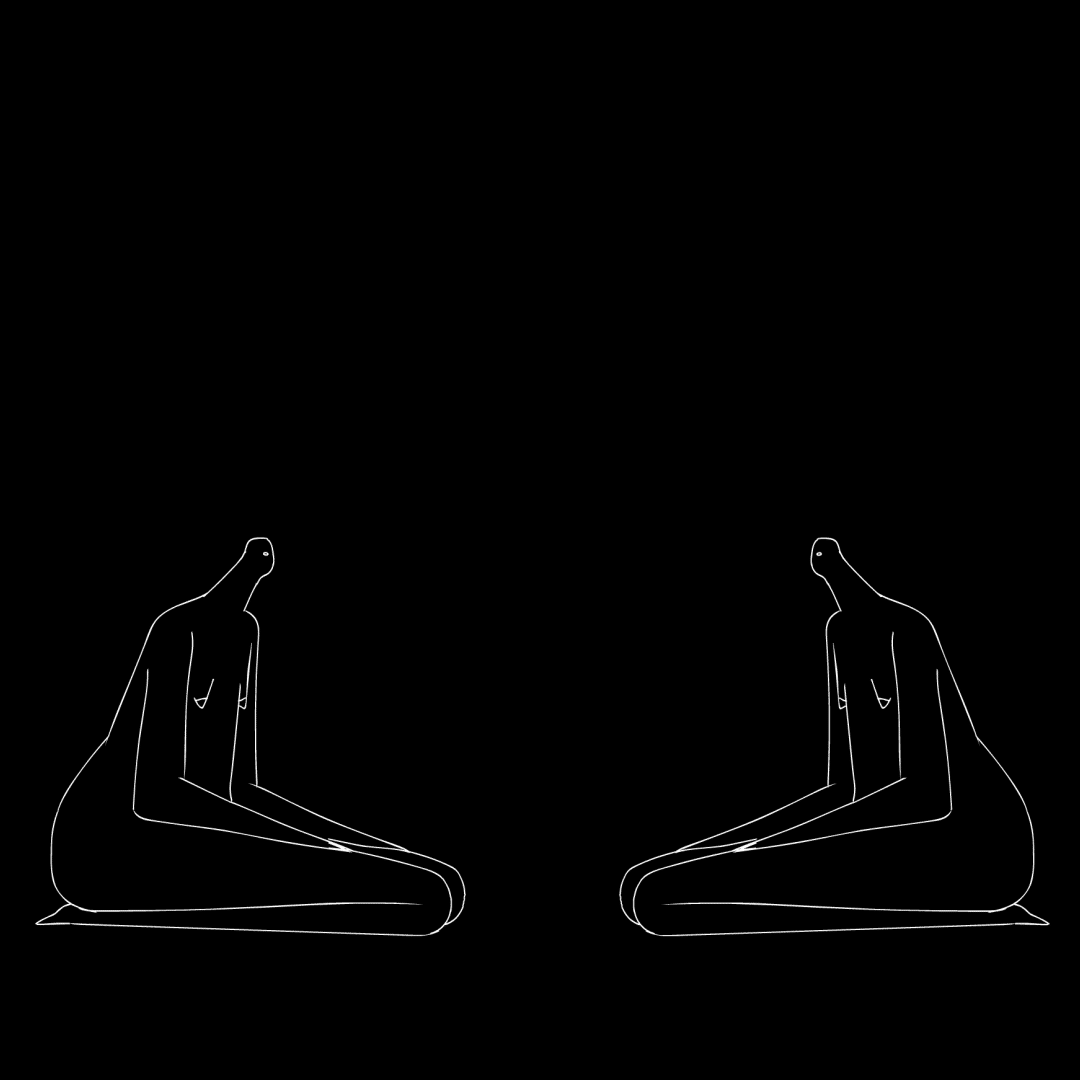(m)Othering
director, interaction designer, animator

You stand in a warmly-lit space awash in a soft, vibrational soundscape. All around you are alluring and strange objects: figural abstractions, fragments of imagined geometries, and biophilic forms. In the middle of this space stands a tall frame, suggesting an open doorway – or, perhaps, a mirror. And indeed, on either side of the frame are two large screens, turned back-to-back like opposite faces of a reflection. This space feels mysterious, even ritualistic, but the invitation is simple: touch.
"(m)Othering" is a work of experimental animated art exploring motherhood as the sensual, metaphysical, and metaphorical encounter between Self and Other, a spectacle of creation and erasure. It is dual–format, conceived both as an interactive "video/art/game" intended for physical installation, and as a companion film that adapts its content for linear screening. Its hand-drawn visuals are composed of animated loops, layered to create rhythmic, ever-cycling compositions – think classic works like Zbignew Rybczynski’s “Tango,” to contemporary films like Boris Labbé’s “La Chute." Touch-based input drives the evolution of these repeating visual/audio cycles through a progression of interactive vignettes, like stanzas of a visual poem: figures at different scales, undulating in harmony or straining in opposition, mirroring, multiplying, and metamorphosing.
The object of the interaction is to (re)create and (re)cycle a choreography of the individual, intergenerational, and institutional dimensions of motherhood, to aesthetically experience maternal identity in what Judith Butler calls ritualized production. When installed, it is played on one of two touch-based screens, arranged back to back in mirrored reflection between an empty frame suspended between them. It can be played alone or with a partner of any age, gender, or cultural background, suggesting the ever-shifting relational dynamics – permutations of self/child/world – that shape maternal experience.
A full project concept deck (in PDF format) can be viewed HERE.
VISUAL EXPLORATION

The piece blends abstracted and figural imagery, rooted in the biological, metaphysical, and metaphorical maternal body. Its simplified shape language and soft gradient colors draw inspiration through decades of feminist painters – from Agnes Pelton, to Judy Chicago, to Loie Hollowell.

EXPLORATORY STORYBOARDS
click to advance

mOthering boards 01

mOthering boards 02

mOthering boards 09

mOthering boards 01
EARLY MOTION TESTS


ARTIST STATEMENT
Mothers inhabit a political landscape in which our bodies are collectively regulated, an economic landscape in which the devaluation of our labor continues unabated and undebated, and a cultural landscape in which our deepest despairs are papered over with Instagram likes and “mama-bear” platitudes. Meanwhile, the thread of Otherness weaves through the intimate lives of all new mothers as we wrestle, childlike, with new ways of being in our selves, our bodies, and our world. It is as much a process of birth as of radical rebirth, even as the labor of one has come to eclipse the labor of the other. "(m)Othering" echoes sensual tensions at the core of this maternal experience, teasing out the cultural paradox of motherhood as simultaneously conspicuous and unseen.
In spite of its universality, motherhood remains an under-explored domain in interactive media, even as it holds deep thematic resonance with mutuality, relational dynamics, and encounters with the (encoded) Other. "(m)Othering" seeks to leverage these qualities of interactivity to transcend the demographics of its audience, to create a universally approachable public space for maternal experience, launching thousands of conversations in homes, workplaces, and the wider world. These conversations become actionable for us in our intimate lives and as engaged citizens.
Outside motherhood, no situations exist in human experience that so radically and so simply bring us face to face with that emergence of the other; I like to think that in our human adventure, we can encounter ‘the other’ – sometimes, rarely – if, and only if, we, men and women, are capable of that maternal experience, which defers eroticism into tenderness and makes an ‘object’ an ‘other me’.
Catherine Clement & Julia Kristeva

